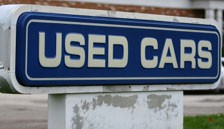Company cars and diesel should be taxed more heavily to cut CO2 emissions and traffic congestion, and improve air pollution.
A research study of 27 Organisation for Economic Cooperation and Development (OECD) countries, plus South Africa, argues that under-taxing company cars amounts to an average annual subsidy per car of around £1,260.The subsidy ranges from just £45 in Canada to £2,178 in Belgium.
In the UK, the OECD research suggests that company car drivers receive an average annual subsidy of around £880.
The recent report published by the OECD brings into question the level of taxation on company cars in the UK.
Whilst the report does not require action by the UK government it may prompt debate over the future taxation of cars.
The present basis of taxation of company cars is now becoming in need of review, said Alastair Kendrick, tax director at MHA MacIntyre Hudson.
At the time of its introduction it was heralded for the fact it took account of the CO2 emission of the vehicle provided to the employee. This basis of taxation is now used in many other countries.
The new report says that whilst emissions are taken into account in the level of tax imposed, the cost to the employee does not take into account of the damage done by the mileage travelled.
"On this basis there would need to be a change of approach to the taxation of the car which recognises annual mileage.
"It begs the question whether it is fair to impose that cost on the employee if the travel is in performance of his/her duties.
"Taking this forward it may be a case of taxing private mileage - this could work but to ask employees to provide details of private journeys may result in a significant tax issues.
"This was looked at seriously when the UK present rules were introduced and given the politics of asking for private mileage was considered unrealistic. In today's world though we have mileage capture data and can use this to calculate the cost of private mileage
"If the above was being considered it begs the question about commuting mileage. In the UK we consider these to be private miles yet in other EU countries commuting is considered business travel
"It seems for a number of reasons it is time to start a debate on how a benefit should be determined and its impact on employees."
Simon Upton, environment director at the OECD, said: “The environmental and social costs of car use – air pollution and congestion for example – are not well reflected in the costs of driving.
“Those problems are made even worse when countries subsidise the purchase and use of company cars. These subsidies mean more cars are purchased and they are more heavily used than would otherwise be.
“Policymakers need to ask whether subsidising the commercial use of vehicles is a good use of resources, given the costs we already know car use imposes on society.”
The report claims that increased contributions to climate change, local air pollution, health ailments, congestion and road accidents cost OECD countries an estimated £91 billion.



















Login to comment
Comments
No comments have been made yet.